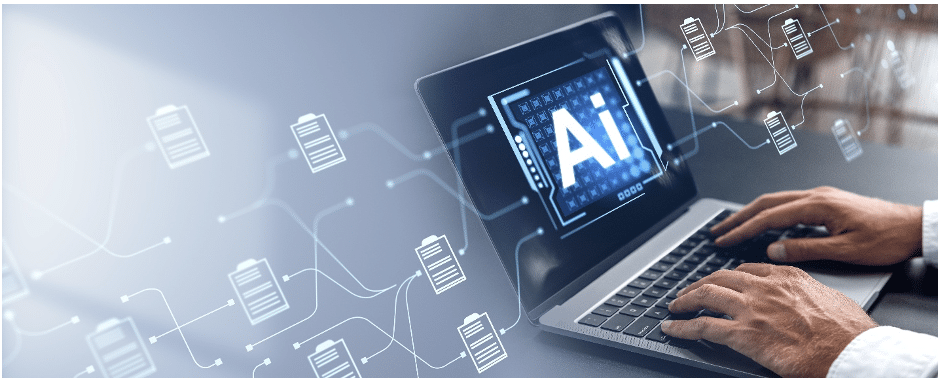Menu
Drafting AI Contracts: Key Clauses to Protect Your Business
October 10th, 2025
As generative AI (GAI) tools like ChatGPT become common in business services, it’s crucial to ensure your contracts anticipate and regulate their use. Whether you are providing or receiving GAI services, incorporating clear contract terms now will help you mitigate significant legal risks.
Essential GAI Definitions
Starting with clear definitions is key, as the terminology can be complex. Here are some of the terms you should consider defining:
- Generative Artificial Intelligence (GAI): AI models that emulate the structure of input data to generate derived synthetic content.
- GAI Tool: A system (like ChatGPT or DALL-E) designed to process data and simulate human intelligence to generate "new" works such as text, images, or code.
- Prompt: The words, images, or other material used by the client to direct a GAI Tool. While prompts aren't subject to copyright, they can be considered the client’s confidential information.
- GAI Outputs: Images, text, code, or other material created or partially created using GAI based on the Client's input.
- Training Data: Data used to train the AI tool, which can be provided by the Client (Client Training Data) or by third parties (Third-Party Training Data).
The legal status of using third-party copyrighted data to train GAI is currently unresolved by US courts. GAI companies often argue that this use is covered by the "fair use" exception to copyright law.
Contexts and Contract Types
GAI clauses are relevant across various business situations:
- Provider is developing a GAI Tool for Client ownership. The Client will own and use this tool to produce GAI Outputs.
- Contract Type: Typically addressed in a Master Services Agreement (MSA) or Software Development Agreement.
- Provider uses its own GAI Tool to generate GAI Outputs for Clients.
- Contract Type: Typically outlined in a Software as a Service (SaaS) Agreement.
- Provider creates a "white label" or custom version of its GAI Tool for the Client. The Client installs this version on its own server or cloud service (e.g., AWS).
- Contract Type: Commonly governed by a software license.
It is essential to clarify the type of contract involved, as this determination affects aspects such as ownership rights. For instance, a Client can own or license a GAI Tool under copyright law. However, under the current copyright law, a Client cannot own or license GAI Outputs.
The Critical Issue of Copyright and Ownership
One of the most significant challenges in GAI contracts is the current legal status of the outputs.
No Copyright for GAI Outputs
Under the Copyright Act of 1976, all eligible works must be authored by a human being. The DC Circuit Court recently affirmed the denial of copyright registration for AI-generated work, holding that an AI tool cannot be the recognized author.
What this means for your contracts:
- Neither the Provider nor the Client can "own" the copyright for GAI Outputs.
- Consequently, GAI Outputs cannot be legally "licensed" from the Provider to the Client.
Protecting Deliverables
If the Client plans to monetize the Provider’s deliverables (such as software), the Client may want to insist that the Provider NOT use GAI in the creation process. This ensures the Client can register the copyright for the deliverables, protecting its intellectual property investment from unlicensed use.
For this situation, a contract clause might read:
“Provider shall obtain Client’s permission, in advance and in writing, before including any content generated by GAI in any Deliverable.”
Shifting Risk with Indemnification
A major risk for both parties is a lawsuit alleging that Third-Party Training Data used to train the GAI Tool infringed on a third party's copyrighted material.
The Client’s main concern is that the third-party training data and resulting Outputs will be found to be infringing. The Provider may try to shift this risk to the Client, while the Client should insist the Provider assume the risk and indemnify the Client.
To protect the Client, an indemnification clause is essential:
“PROVIDER shall defend, indemnify and hold Client harmless against any loss, damage, expense, liability or costs (including reasonable attorneys' fees) incurred in connection with claims, demands, suits, or proceedings made or brought against Client by a third party alleging damages due to the GAI Tool, including without limitation claims alleging (i) the use of the GAI Tool, including any GAI Outputs, infringes, misappropriates or violates the patent, copyright, trademark, trade secret or other intellectual property or proprietary rights of such third party.”
By incorporating these definitions, carefully addressing copyright limitations, and including strong indemnification language, businesses can better navigate the evolving legal landscape of generative AI.
Categories: Technology









